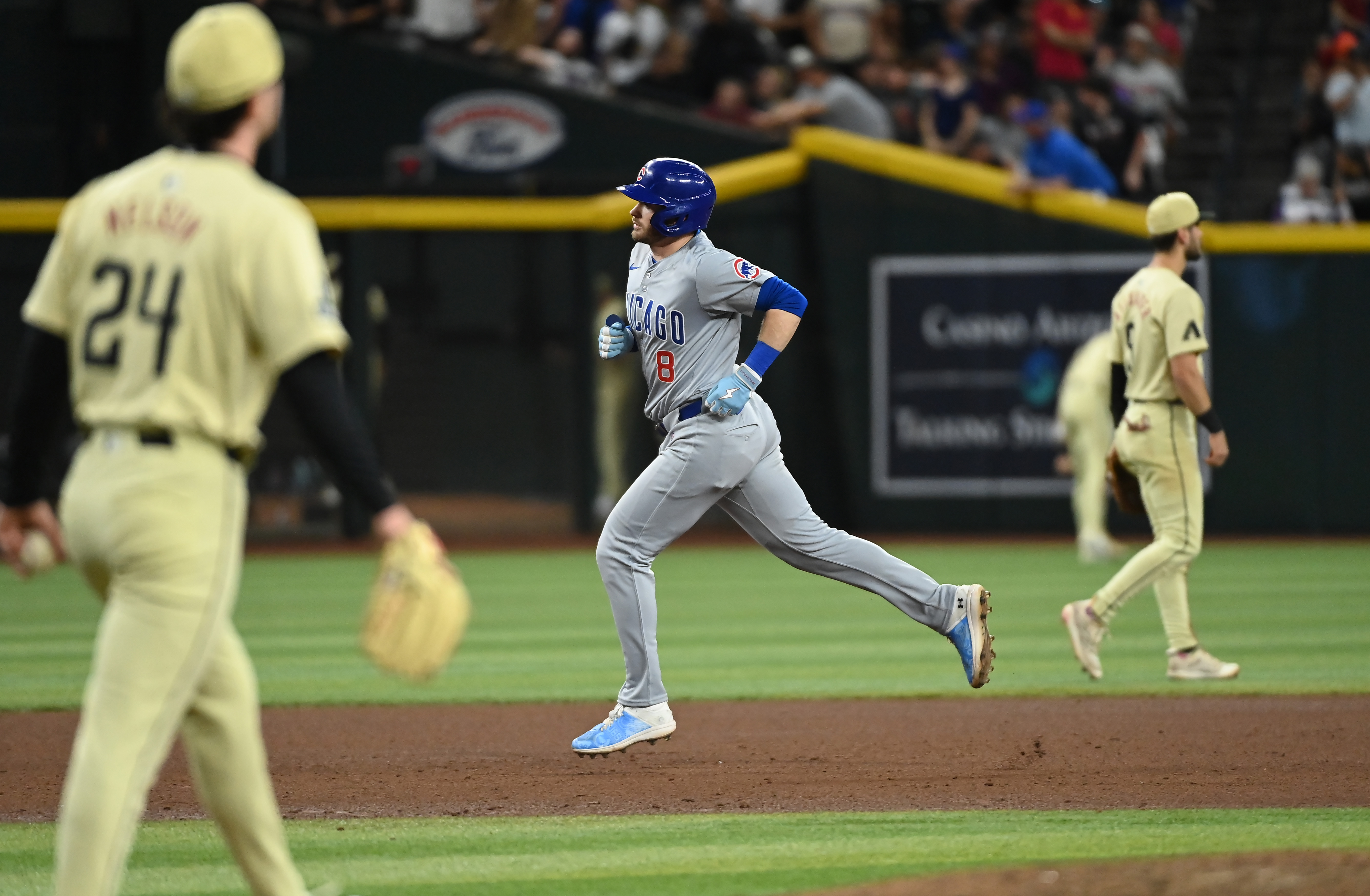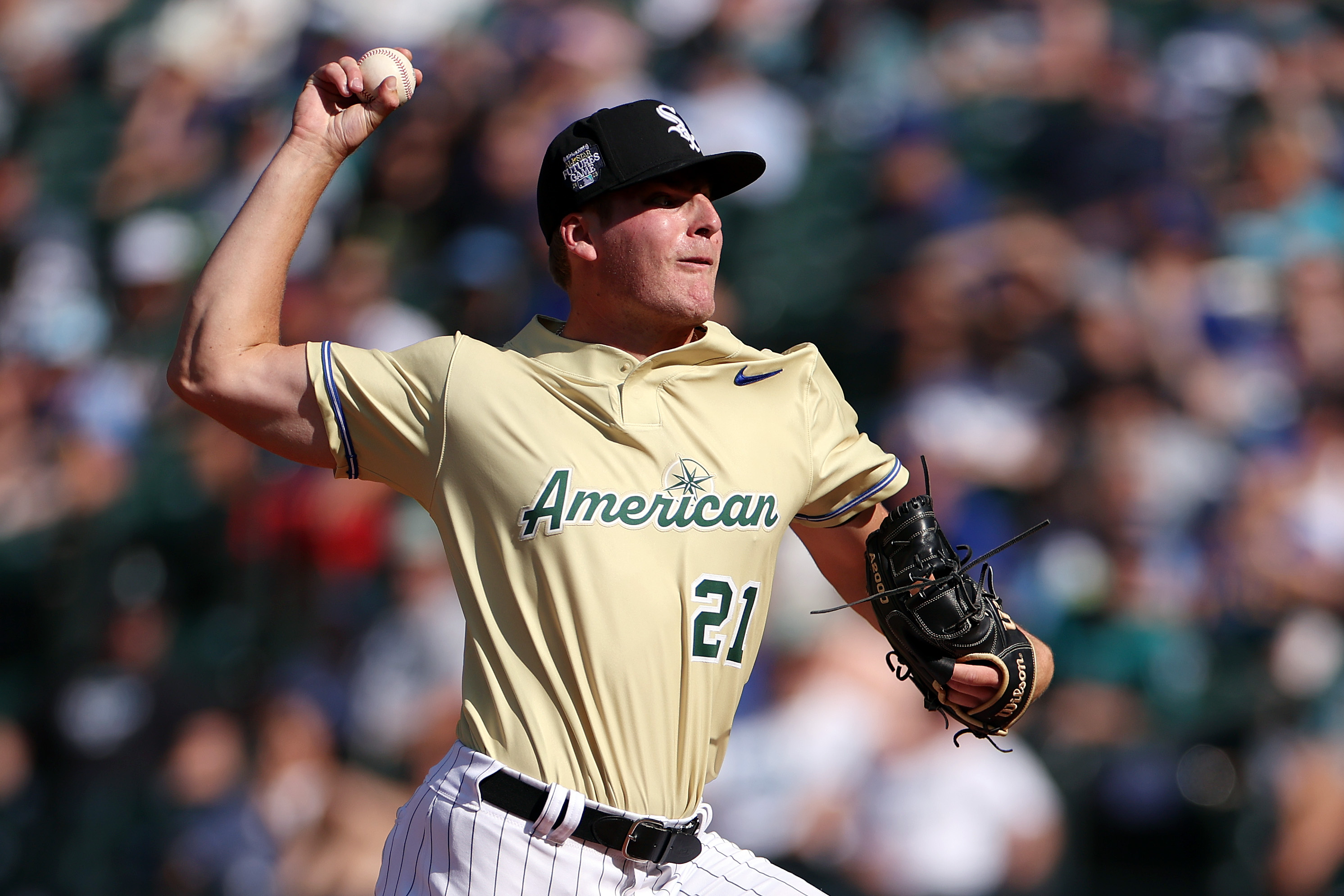
For the 10 teams that qualify for MLB’s postseason, October represents a chance to climb baseball’s mountain and secure a championship. For the 20 other teams sitting at home, though, October is a chance to evaluate those in the Big Dance.
Less than two weeks into the postseason, here’s some things that the Cubs can take away from the action thus far.
1. Starting pitching matters
With bullpens being relied on more than ever, starting pitchers aren’t used the same way as just a few seasons ago. The Brewers rode their bullpen all the way to Game 7 of the NLCS last season, while the Rays used an “opener” (a reliever who starts a game and pitches 1-3 innings) in Game 4 of the ALDS this season – beating the Astros 4-1.
And yet, the Astros and Nationals are proving how important it is to have a difference-making rotation. The bullpening method can work, but being able to throw Justin Verlander, Gerrit Cole and Zack Greinke at an opponent in a single postseason series is downright unfair.
The Nationals have Max Scherzer, Stephen Strasburg and Patrick Corbin in their rotation, as formidable of a trio as any in the National League. They also have Anibal Sánchez, who took a no-hitter into the eighth inning of Game 1 of the NLCS against the Cardinals on Friday. No big deal...
And despite getting eliminated, the Rays — Blake Snell, Tyler Glasnow, Charlie Morton — and Dodgers — Clayton Kershaw, Walker Buehler and Hyun-Jin Ryu — have talented rotations, as do the Cardinals and Yankees.
MLB
Meanwhile, the Cubs rotation didn’t have as big of an impact this season as they expected, a contributing factor to the team not making it to October.
“We had really high hopes for our starting group this year," Theo Epstein said at his end-of-season press conference. "You looked at it 1-through-5, we had a chance to roll out a really quality starter on a nightly basis, and that might be an area that was a separator for us versus some of the teams we were competing with. While we had a couple guys who had really good years and all our starters had their moments, it didn't prove to be a separator.
"There was some injury and regression (especially after injury) that led us to be closer to the pack certainly than we had envisioned. It’s an accomplished and experienced group, but with experience means that we could stand to add some younger talent, refresh the group as well. We certainly need to add depth and we need to add some youth and a little bit of a different look to the staff, as well, going forward.”
Yu Darvish, Kyle Hendricks and Jon Lester are under contract for 2020, while Jose Quintana has an $11.5 team option. The Cubs don’t have an Astros or Nationals-esque trio, but their rotation can still be good enough to lead the charge in 2020. They’ll need them to do just that if they are to return to the top of the NL Central.
2. Manager decision-making is far more important in October than regular season
The Dodgers’ season came to an abrupt close in Game 5 of the NLDS, with manager Dave Roberts being smack dab in the spotlight.
With the Dodgers leading 3-1 in the seventh inning, Roberts called Clayton Kershaw’s number to get Los Angeles out of a two on, two out jam. Kershaw did just that, but the Nationals opened the eighth with home runs from Anthony Rendon and Juan Soto (on consecutive pitches) to tie the game.
Kershaw is one of the best pitchers in his generation, a three-time Cy Young Award winner and one-time NL MVP. However, his postseason woes are real (4.43 ERA, 32 games/25 starts), and therefore, Roberts made a questionable decision going with Kershaw in that moment.
Where was Kenta Maeda to face Rendon? Maeda had allowed just a single hit in 3 2/3 innings at this point in the postseason. He took over for Kershaw after Soto’s home run, striking out three-straight Dodgers to end the eighth.
Roberts also didn't bring in closer Kenley Jansen to start the 10th inning, when the game was still tied 3-3. Instead, he left in Joe Kelly, who allowed a decisive grand slam to Howie Kendrick. Only then did Jansen come in, but the damage was done. Not bringing in your closer in an extra-inning postseason game is inexcusable, and while it may be outcome bias, this game proves why.
Roberts has 393 wins in four seasons as Dodgers manager, leading them to World Series appearances in 2017 and 2018. Even with that experience, though, he made a bad decision at a terrible time. The postseason is a different animal, not only for players, but the coaches in the dugouts, too.
Of the known candidates the Cubs have interviewed for manager — David Ross, Joe Girardi, Mark Loretta and Will Venable — only Girardi has big-league managing experience. And while Epstein noted at his press conference that it isn’t everything, he added that experience is important.
"Lack of experience - and I'm speaking broadly for the group, not necessarily [about Ross] - is always a factor,” Epstein said. “It's not a determining factor, but it's a significant factor. I always have greater comfort level hiring for roles in which the person has done the role before. Especially with manager.
“But I think there are ways for that to be overcome - there are a lot of different ways to get experience in this game - beliefs, skills, personal attributes, those can outweigh a lack of experience, but experience certainly helps.”
3. Winning in the postseason is tough
After the Cubs won the World Series in 2016, there was a feeling that baseball’s next dynasty was underway. After all, the Cubs had a talented, young position player group that reached the promised land early in their time together. It made sense.
Those talks have died down, of course, as the Cubs haven’t even appeared in the World Series since 2016. And while they've had plenty of success since 2015, it feels like they could’ve had more.
The thing about baseball, though, is that it’s extremely hard to sustain those high levels of success. A few teams (Red Sox, Cardinals, Giants) have won multiple World Series this century, none have repeated as champions since the Yankees, who won three-straight from 1998-2000.
The Twins won 101 games this season and were swept out of the ALDS. The Braves won 97, only to lose Game 5 of the NLDS in brutal fashion at home to the Cardinals.
The Dodgers made it to the World Series in 2017 and 2018 and came up empty both times. They won 106 games this season, a franchise record, only to be eliminated in the NLDS by the Nationals — a Wild Card team, nonetheless.
Does that make last few seasons even more frustrating for the Cubs and their fans? Probably. October is a crapshoot, meaning as long as a team gets in, they have a shot at winning it all, no matter their record.
At the same time, the Cubs made things look easy in 2016. They had brilliant injury luck, a historic defense, a deep position player group, a loaded starting rotation and the right manager for their young core. Even so, it took erasing a 3-to-1 series deficit against the Indians to win it all, not to mention a dramatic Game 7 win that nearly didn’t go their way.
This isn’t an excuse for the Cubs shortcomings in 2019, but merely a reminder: they won the 2016 World Series, and that's no small feat. This offseason offers the chance to improve as a team for 2020, when they’ll set out to win again.
Click here to download the new MyTeams App by NBC Sports! Receive comprehensive coverage of your teams and stream Cubs games easily on your device.

